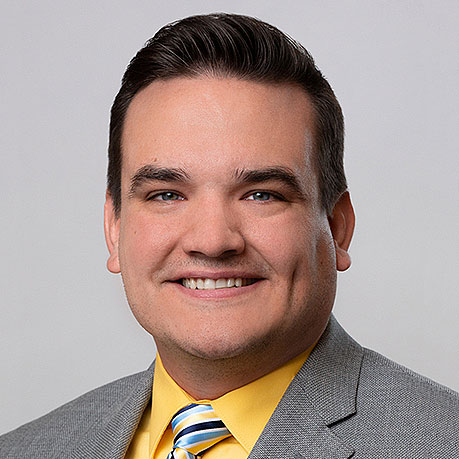FHA Cash-Out Refinance Guide
If you’re a homeowner needing cash, you might look to an FHA cash-out refinance. This program allows you to take out a larger mortgage than you currently have and get the difference back in cash. You can then use this money for anything — paying off debt, covering home repairs, or any other need you might have.
Are you considering an FHA cash-out refinance to cover an expense in your life? Here’s what you need to know.
See today's FHA Cash-Out Refinance rates.
An FHA cash-out refinance can help you take cash out of your home equity. It replaces your current mortgage loan with a new, larger one, giving you cash back in return. Qualifications vary by lender, but you’ll typically need a credit score of at least 580, and a debt-to-income ratio of 43% or less is preferred.
Additionally, you must have at least 20% equity left in your house after the refinance is complete. FHA cash-out refinances also require upfront and annual mortgage insurance.
How does an FHA cash-out refinance work?
An FHA cash-out refinance works like this: you apply for a new mortgage loan that’s larger than the balance on your current loan. Then, that new loan pays off your old balance, and the lender gives you the difference between those two balances in cash after closing.
Keep in mind that an FHA cash-out refinance replaces your old mortgage loan entirely, giving you a new rate, term, and monthly payment. Depending on your qualifications, how much you’re borrowing, and market conditions, this could mean getting a higher interest rate or payment than before.
FHA Cash-Out Refinance Requirements
The main requirement for an FHA cash-out refinance is having at least 20% equity in your home. This means you need to own 20% or more of your home's value outright. Home equity is the amount of your home’s value that you don’t owe to the lender. So if you have $80,000 (20%) paid off on a $400,000 mortgage, that means your cash-out refinance amount needs to be $320,000 or less.
In addition to the equity requirement, you also typically need:
- A FICO® score of 580 or higher
- An acceptable DTI ratio
- To have lived in the home as your primary residence for at least one year
- To have paid your last 12 mortgage payments on time
While the Federal Housing Administration sets the bare minimum requirements for FHA loans, lenders are free to be more stringent with their requirements.
While the FHA technically permits credit scores as low as 500 with a 10% down payment, the final decision is up to the lender. Many lenders set higher credit score requirements to reduce risk and ensure loan stability. Neighbors Bank’s FHA cash-out refinance credit score requirement is 620.
Additionally, FHA loans have flexible debt-to-income requirements, however, 43% or lower is preferred.
How to Apply for an FHA Cash-Out Refinance
To apply for an FHA cash-out refinance, you first need to find an FHA-approved lender. Not all mortgage lenders offer FHA loans — and even among those that do, not all offer cash-out refinances.
Once you find a lender, you need to fill out their application and submit financial documents, just as you did with your original loan.
This will include things like:
- W-2s
- tax returns
- bank statements
Your lender will also order an appraisal, which they’ll use to verify the value of your home and how much you can borrow against it.
Finally, you close on the loan. This is when you pay your closing costs — including your upfront mortgage insurance premium (UFMIP) of 1.75%. After that’s complete, the new loan pays off the old one, and you get a lump sum payment in return. You’ll start making payments toward your new loan the next month.
Benefits of the FHA Cash-Out Refinance
FHA cash-out refinances have some big perks. First, FHA loans are easier to qualify for than many other programs, so they are available to borrowers with lower credit scores and other challenging financial circumstances. They also have low mortgage rates compared to other loan programs, and you can use the funds any way you like.
Ways You Can Use Your Funds
Cash-out refinances can be used for virtually anything. Here are some ways
that you could benefit from this loan program:
- Pay off debt
- Fund home improvement projects
- Cover education expenses
- Build an emergency fund
- Invest the money
- Take a vacation
- Cover recent medical bills (if needed)
Just keep in mind that when you take out a cash-out refinance, you are putting your home as collateral, so there’s always the risk of foreclosure if financial difficulties make it hard to keep up with higher payments. Make sure to carefully weigh your options.
FHA Cash-Out Refinance FAQ
What is a FACOP Refi?
FACOP stands for “Federal Assistance Cash-out Program” and is a phrase some lenders use to refer to their FHA cash-out refinances. It is not an official loan program, and some online scams use this term, so proceed with caution. One recent scam tells consumers they can make $185,000 using a FACOP refinance. This is not true, nor is it how the FHA cash-out refinance program should be viewed.
What is the max LTV ratio for FHA cash-out refinance?
The maximum loan-to-value (LTV) ratio for an FHA cash-out refinance is 80%, meaning your loan balance — after the refinance — should be no more than 80% of your home’s current market value. Your lender will order an appraisal to determine this value as part of your application process.
How will an FHA cash-out refinance affect my monthly payments?
An FHA cash-out refinance replaces your mortgage loan entirely, giving you a new term, interest rate, and monthly payment. Your payment may be higher or lower as a result, so make sure to read the fine print before closing on your loan.
Are you eligible for a FHA home loan?
Talk to one of our loan experts to see if you qualify.
Get started
